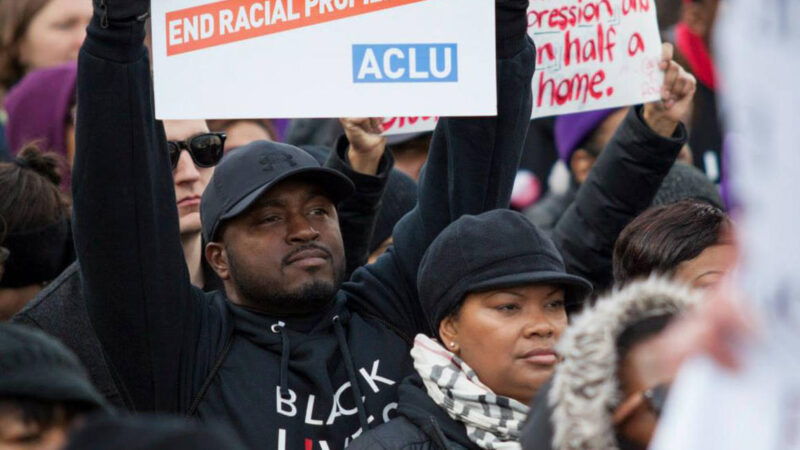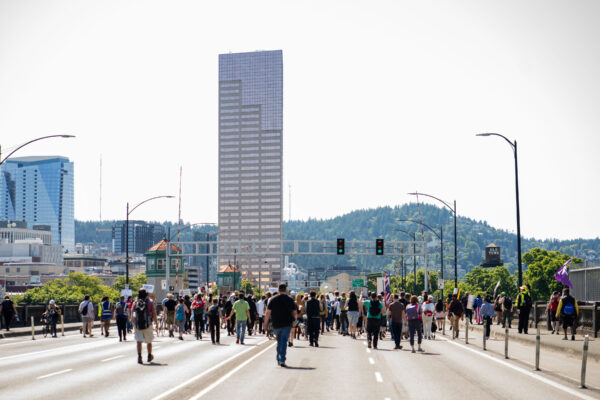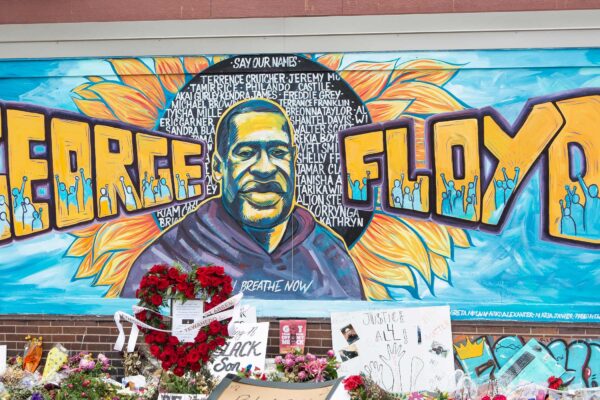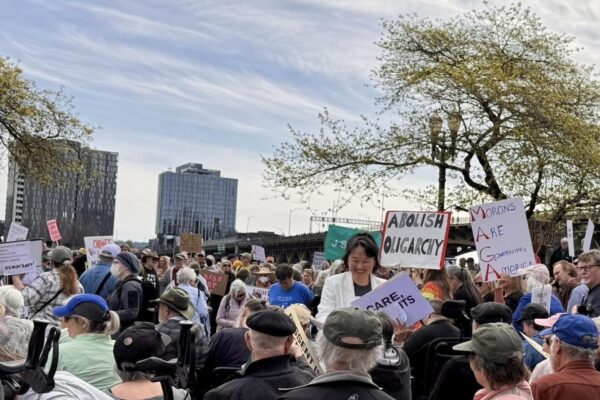Racial Justice
The ACLU works to stop discrimination based on race and ethnicity and to ensure equal opportunities for communities of color. We fight racial bias and advance civil rights.

What you need to know
3X
Black students are suspended and expelled from school three times more often than white students are.
20X
The median wealth of white households is 20 times that of black households and 18 times that of Latino households.
3X
Black inmates are three times more likely to face the death penalty than whites.
The ACLU of Oregon strives to end the disproportionate impact of police abuses, over-incarceration, and the selective enforcement of drug laws on communities of color.
By Police
Good police practices, thorough training, carefully crafted policies, and appropriate allocation of resources in law enforcement, can ensure public safety and prevent abuses in encounters between police officers and citizens. Unfortunately, across the nation patterns of racial profiling, the selective enforcement of laws against people of color, and disturbing stop-and-frisk policies have resulted in a disproportionate effect on certain communities, with people of color coming in contact with law enforcement and the criminal justice system at far greater rates than white people.
In Prison
More Americans are deprived of their liberty than ever before—unfairly and unnecessarily, with no benefit to public safety. It’s a problem that affects people of color most of all. As more people find themselves locked up, more people face the culture of violence and inhumanity that persists in many of America’s prisons. Excessively harsh criminal justice policies result in mass incarceration and stand in the way of a just and equal society.
In Schools
The “school-to-prison pipeline” refers to the policies and practices that push our schoolchildren, especially those most at-risk, out of classrooms and into the juvenile and criminal justice systems. Despite significant strides in Texas, our schools continue to rely heavily on ticketing as a form of discipline and disproportionately punish children of color and special needs kids.
The Latest

#BlackLivesMatter Tracked by Oregon DOJ with Social Media Monitoring Software

Honor George Floyd's Memory By Working Towards Police Accountability
Cases, Campaigns & Legislation
Northwest Center for Alternatives to Pesticides et al v U.S. Department of Homeland Security
Stay Informed
Sign up to be the first to hear about how to take action.
By completing this form, I agree to receive occasional emails per the terms of the ACLU’s privacy statement.
By completing this form, I agree to receive occasional emails per the terms of the ACLU’s privacy statement.


